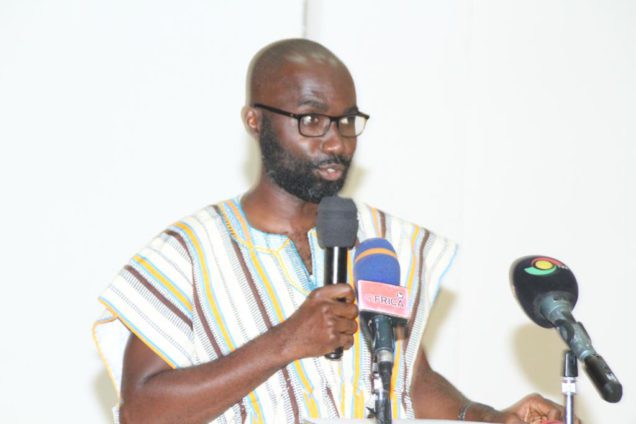The University of Ghana School of Public Health has dismissed allegations that it is tracking school children with ill-intents through an ongoing study.
The research is the Accra Urban Adolescent Nutrition study.
The study seeks to describe the nutritional status, dietary intake, physical activity patterns, and food environment of about 1,000 adolescents from low- and middle-class households in 10 selected neighborhoods in the Greater Accra Region.
The selected communities are Chorkor, Abelemkpe, South La, New Mamprobi, Achimota, Old Nungua, West Legon, Kokomlemle, New Town, and Nungua.
As part of the process to collect the data, participants in the study will wear a fixed belt with an accelerometer and GPS that will track their physical activity and movement trajectories over the period of the study.
This belt, for some, is with malevolent intentions.
But addressing the press in Accra Friday, the project lead, Prof. Richmond Aryeetey, described the allegations as false.
“The devices and procedures are not intended to harm the children in any way. It is false that the devices given in the study are being used to track/monitor the children with ill-intent. On the contrary, the findings of the study will inform national policy and programmes on adolescent nutrition in Ghana,” he said.
He emphasized that the study has been approved and is being supported by relevant stakeholders including Noguchi, Ghana Health Service, and the Ghana Education Service.
“In line with international best practices and ethics of human subjects research, every child who participates must have both the parent/caregiver and the child give written informed consent and assent (that is their permission) for the household to be eligible for the study,” he said.
Giving further details about the study, Prof. Aryeetey said that participation is purely voluntary and is being undertaken by professionals
"During this 7-day period, the adolescents are invited to a central location in the community where trained biomedical scientists take a small amount of blood sample for laboratory assessment of their nutrient status."
"The study does not recruit just anyone for inclusion. They have to meet clear inclusion criteria for age, location, and consent," Prof. Aryeetey explained.
Latest Stories
-
COP29 ends with $300bn annual deal to fight climate change
39 seconds -
Martin Amidu: Government must account to electorates for the violent conflicts before 2024 election
5 mins -
Disregard Wontumi TV presenter’s misleading broadcast on Election 2024 voting date – EC
2 hours -
I’ve no plans to leave comedy for movie production, says Basketmouth
3 hours -
Akufo-Addo seeks to use Bawumia to complete Akyem Agenda– Asiedu Nketiah
3 hours -
‘Bawku conflict politicised for electoral gains’ -Martin Amidu alleges
3 hours -
Let’s learn from ExxonMobil, high flyers must lead the way for mergers – AOMC Boss
3 hours -
‘Let industry players play the game ‘ – AOMC boss slams political interference in oil sector
4 hours -
‘So many regulations, yet corruption prevails’ – Dr Riverson Oppong on OMC oversaturation
4 hours -
At least 24 dead after two boats capsize off coast of Madagascar
5 hours -
Madina MP lauds White Chapel Youth Group for championing peace ahead of elections
5 hours -
Man United settle for draw at Ipswich Town in Amorim’s first game in charge
6 hours -
GPL 2024/2025: Prince Owusu screamer earns Medeama win over Young Apsotles
6 hours -
BBC visits mpox clinic as WHO says DR Congo cases ‘plateauing’
6 hours -
Burning old TVs to survive in Ghana: The toxic trade in e-waste
6 hours

